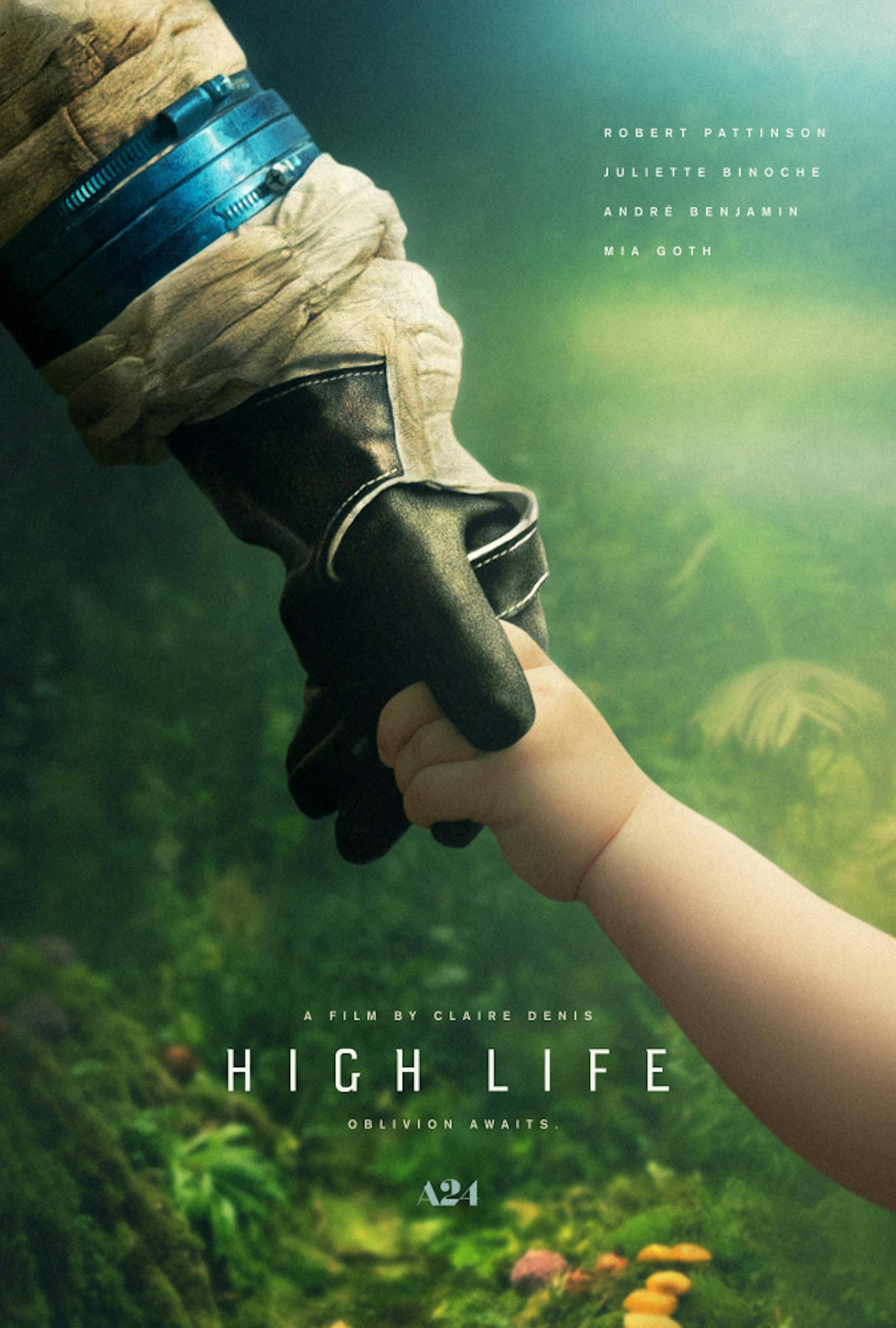Discord reigns in Claire Denis' “High Life” (2018), an intergalactic psycho-thriller starring Robert Pattinson. An infant’s wails pierce the dim halls of a space station, above the industrious hum of life support systems. Childhood memories flicker across the screen and pass in the space of an exhale. Stuart A. Staples’ dread-inducing score creeps upward.
The squeamishness induced by Denis’ first English-language project have earned it its sci-fi/horror labels, and “High Life” uses them to ask incisive questions about the messy ethics of human progress. What’s really earned this film labels of "fascinating, disturbing, sensual, hypnotic and provocative all at the same time," however, is Denis’ retention of that classic wide-eyed wonder at the enormity of space. “High Life” never lets us forget that Pattinson and Co. truly will go where no man has gone before, even if Juliette Binoche collects their sperm along the way.
Since its premiere at the Toronto International Film Festival in September, “High Life” has delighted many critics but divided audiences with its futuristic, gothic vision of outer space. Rolled out across the U.S. this month, the film unfurls itself in nonlinear fits and starts. It introduces us to Pattinson’s Monte and infant Willow (Scarlette Lindsey), ostensibly the only survivors onboard a spacecraft. Monte’s assumed the role of Space Dad, but it’s a harrowing one — when Willow cries too vociferously into an improvised baby monitor, Monte, masterfully captured by cinematographer Yorick le Saux, drops his repair wrench as he’s conducting repairs outside the craft, only able to linger as it drifts into nothingness.
Longtime co-writers Denis and Jean-Pol Fargeau are patient in revealing the purpose and identity of these wanderers. Gradually, though, as we trod with Monte through the lonely monotony of his existence, we meet the people behind the bodies he dumps to save weight in a sobering opening sequence. Monte and his doomed crew-mates, we learn, were death-row inmates on Earth, offered their freedom to go on a suicide mission to the center of a black hole. Even that, however, has a catch, and the astro-prisoners soon find themselves baited with drugs and experimented upon by the cultish Dr. Dibs (Juliette Binoche).
That title shot, fixated on their bodies falling through the void, makes one thing immediately clear: This is not the sleek, metallic space of “2001: A Space Odyssey” (1968), nor is it the cyberpunk underbelly of “Blade Runner” (1982). “High Life” production designer François-Renaud Labarthe confines us to the utilitarian, office-park banality of the spaceship, only identified by a stark number seven emblazoned on the exterior. This windowless picture of space, steeped in a darkly pedestrian sense of corporate chintz, recalls the oft-forgotten capitalism of classics like “Alien” (1979). This future is driven by cutting costs and maximizing profit; it sends its astronauts in crafts that resemble shipping containers, not swashbuckling star cruisers.
And, like “Alien,” “High Life” gives us a world whose forward march of progress often supersedes human lives in the pecking order. As Monte and his fellow inmates soar toward their final destination, their bodies and cells become prized scientific commodities, subject to medical and psychosexual experiments. Binoche’s spectral performance as the brilliant, sadistic, broken doctor is transfixing; the austere script affords her deference that she uses to shine, with an utterly spent serenity.
“High Life” does reveal some narrative elements rather clumsily, and some of its characters are as empty as the space they travel in. But when we see the phantasmagorically-shot Binoche writhe around the frame in an almost religious euphoria, it is hard to fault this film for truly swinging for the fences. That’s what earns “High Life” descriptors like ‘orgasmic brilliance.'
Denis’ brazen film is not afraid to explore the intense seductiveness of the knowledge its humanity seeks, the truth for which they deem these inmates expendable. The film shares in its characters’ awe as they watch stars recede from view, as they hurtle toward them faster than the speed of light. It ventures to the farthest unknown and then decides to go still further. It is bold enough to stare into the light and ask how far we’d go to get there.
'High Life' serves eerie chills, asks higher questions

A promotional poster for Claire Denis's 'High Life' (2018) is pictured.
Summary
'High Life' unflinchingly tackles humanity's failings against the bewitching emptiness of space
4.5 Stars





